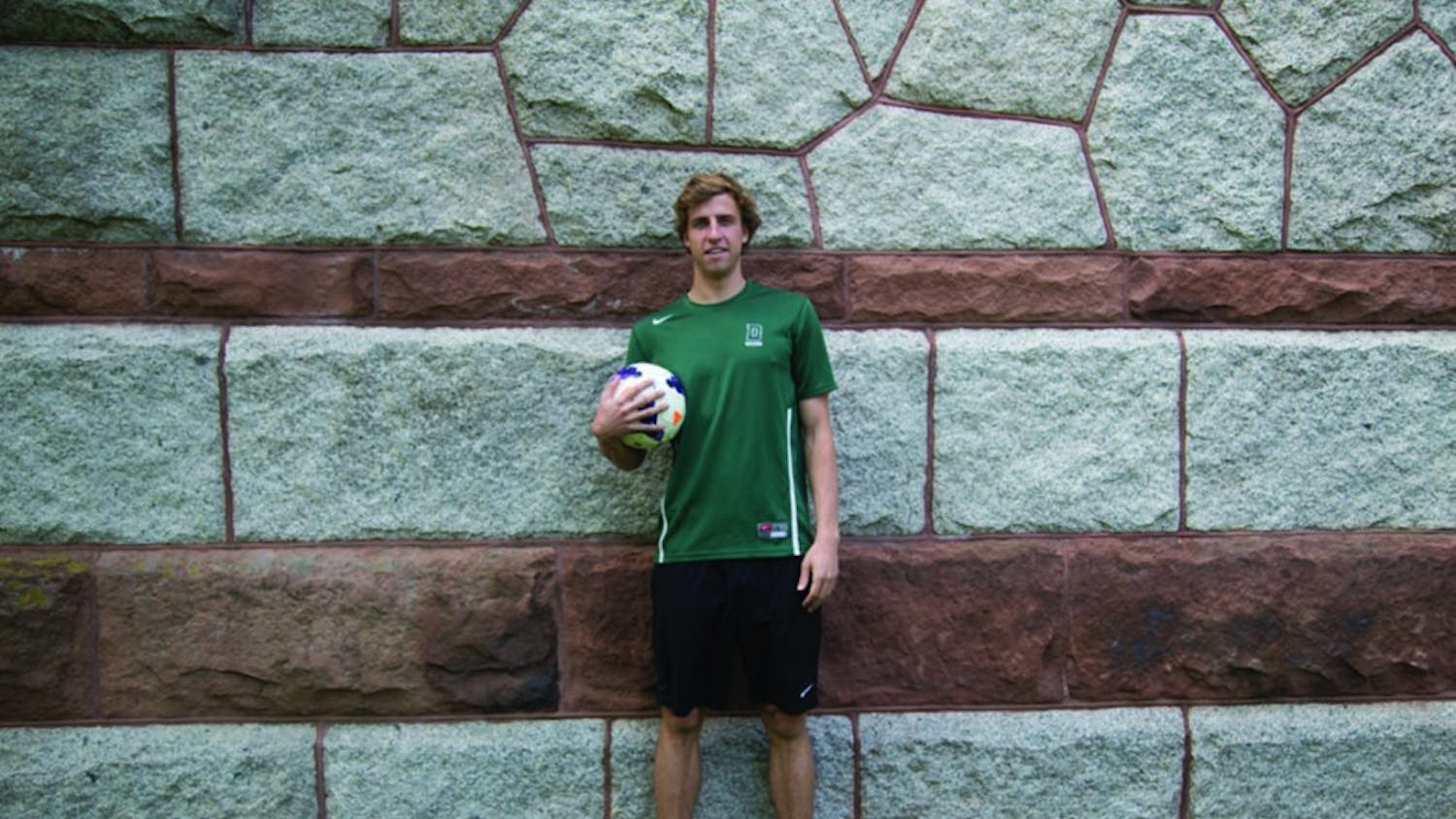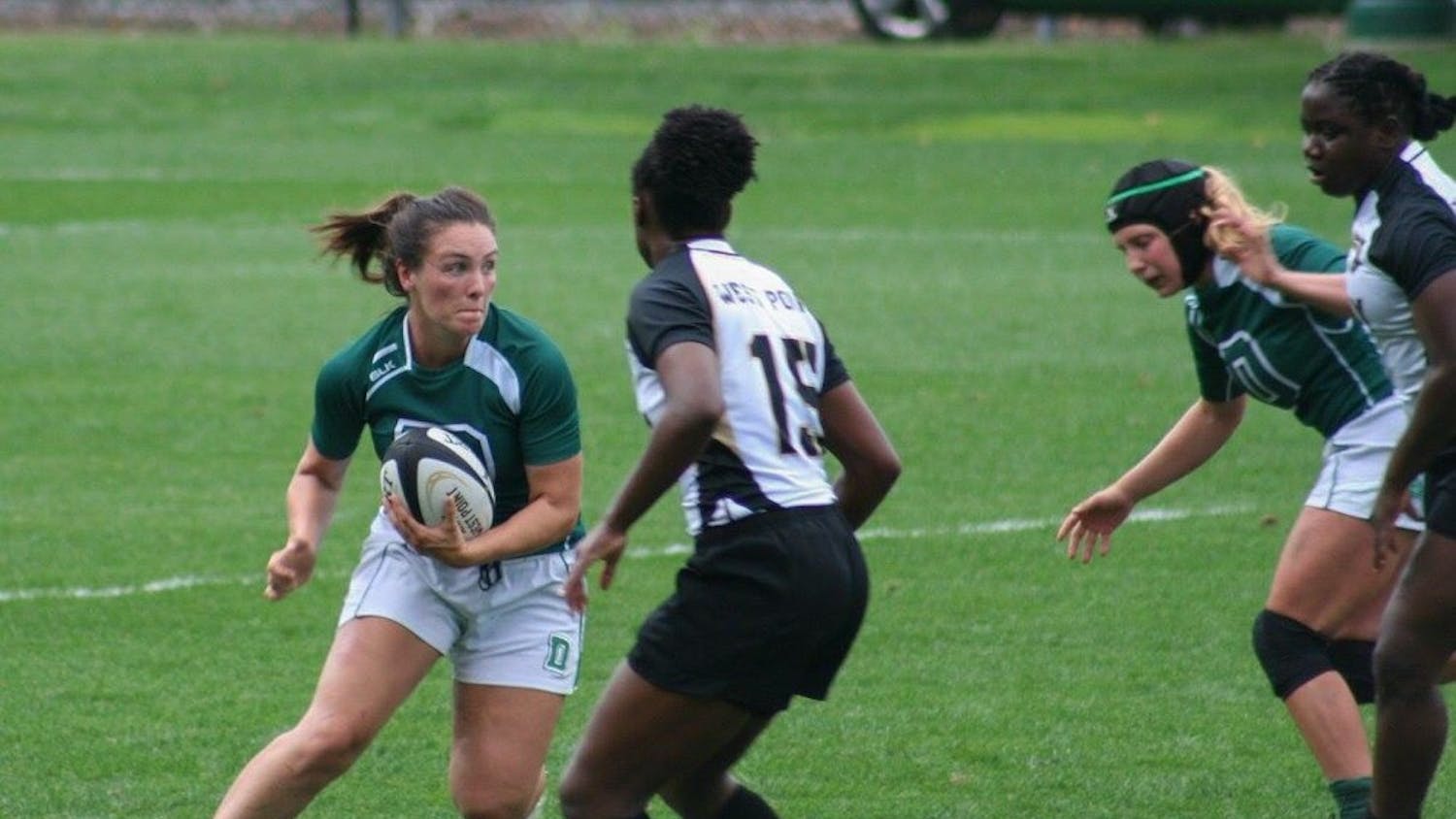With a national championship win this fall, the Dartmouth women’s rugby team secured its spot as a powerhouse in the sport. However, many forget that there is a men’s team that competes at a high level year-round. The Dartmouth Men’s Rugby Football Club, although not an official varsity sport like the women’s team, has a legacy of success in the Ivy League and across the nation. With 23 Ivy League cup championships over 47 years, seven straight Ivy League Sevens championships since 2012, two USA Sevens Collegiate Rugby championships in 2011 and 2012, five National XV Final Fours, two National XV Championship Runner-Ups and one D1AA XV Championship Runner-Up finish, it is undeniable that the DRFC has been able to sustain success over time.
Most teams that compete at the level of the DRFC have their funding fully taken care of by their school. However, since the DRFC is not a varsity team, funding must come from other sources.
“A lot of it has to do with the way that we fundraise, as well as the duration of our season. We have games in all three terms, which would not be allowed if we were varsity,” said Struan Coleman ’19, the rugby team’s captain.
The alumni of the team provide them with the funding necessary to compete year-round, said Kyle Burcin ’19, the treasurer for the team.
“We have the freedom to use our money as we wish. We have a very supportive alumni base and strong cash flow coming in,”
Burcin further broke down what the funding goes toward, explaining that while in the fall, the team mainly stays in the Ivy League, in the winter and spring, it may travel much further — including a trip to Florida during this spring break. He added that travel expenses, as well as clubhouse upkeep and coaches pay are funded from alumni donations.
While the team cannot recruit by scouting out high school players, the DRFC does employ a tried-and-true method.
“It’s basically word of mouth,” Coleman said. “We set up a booth at the club sports fair in the fall. We’ll do sweeps and go to freshmen floor meetings. For kids who are on the team already, if you have any friends who have a lot of free time and are looking for something competitive but also fun and are somewhat athletic bring ’em out.”
Although this does not always result in a large pool of players, the method does have the effect of drawing out those who are already connected with the sport.
“Every year we get one or two kids who played rugby at a high level in high school beforehand,” Coleman said. “They are kind of like the cornerstone of our team. We love to get the recently retired varsity athletes as well. Whether that happens their senior year, the end of their last season or if at some point they decide that the time commitment of a varsity sport at Dartmouth is too much ... they still wanna play.”
For Cam Guage ’22, his first experience with Dartmouth rugby came from seeing the team at a distance.
“When I was in high school and played rugby, I watched the 7s tournament in Las Vegas on TV, and I remember seeing Dartmouth was competing for the championship one year,” Guage said.
He added that he was able to start playing with the team during the preseason as soon as he got to campus in the fall.
This untraditional recruitment method results in a group that is less homogenous when experience is considered, but this is made up for by a strong team culture and coaching, according to Burcin.
“One of the mantras of the DRFC is that it is a student-led team first and foremost,” Burcin said. “While we have one of the [best], if not the best coaching staff in the country, they emphasize that it is really us that drive the team and where we want to go with it.”
As a club and athletic team, there is a breadth of leadership in order to address both the athletic and fundraising needs of the organization. Included is a captain and either one or two co-captains, an alumni chair, a treasurer, match secretaries who plan for the team’s travel and a tour director who plans the DRFC’s spring tour, which requires a significant logistical effort for a student-run organziation.
“When you think about what that means logistically, it’s a two-week trip sometimes to a foreign country,” Coleman said. “If it’s within the United States, it’s to somewhere warm and far away from Hanover. [The planning involves] flights, hotels transportation, meals, practices, games. It’s a lot of work and its really student-led. It’s a very time-consuming but rewarding thing to be a part of.”
As a fairly large time commitment, many would have reservations about playing a year-round sport while in college — but for others, the sport extends to all aspects of life in the best possible way.
“It’s probably the best decision that I have made in my time here at Dartmouth, to dedicate a lot of time, effort and emotional energy to this group,” Coleman said. “It’s a really special place and you get out of it what you put in, which isn’t always true of thins at this school or of life in general. To go out there every day and play the sport that I love with my best friends has been amazing.”
For Burcin, the best part of the team is the welcoming and inclusive attitude.
“No matter who you are — if you’re a high-level athlete who just quit a varsity sport and wants to get back to competing against the highest level of athletes, we have a place for you, if you’re a guy who wants to come out and learn the game of rugby, we have a place for you and if you just want to come and meet a great group of guys — we have a place for you.” Burcin said.



